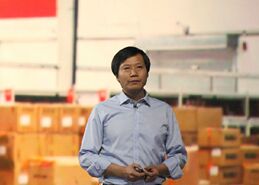小米文件引发造车猜想
|
China’s smartphone maker Xiaomi has hinted at plans to build electric vehicles as tech groups increasingly look to cars as next-generation smart devices. In a regulatory filing in India publicised on Tuesday, Xiaomi said it may sell “all types of vehicles for transport, conveyance and other transport equipment, whether based on electricity or any other motive or mechanical power, including the components, spare parts” in India.
The company has not announced any concrete plans to make electric vehicles in its native China and said it was not currently seeking any licences or permission to produce them. “We have nothing in the pipeline,” said one company employee. Lei Jun, the company’s celebrity founder, last pronounced on the possibility of making a car at the beginning of 2015 — then ruling out that it would happen within “next three to five years”. But Chinese social media took that as a hint that Xiaomi was planning an entry into this market, as Chinese tech companies increasingly looked to apply their design and marketing skills in the car industry. Tech savvy Chinese consumers increasingly see in-car “connectivity” — being able to do tasks such as shopping and browsing social media while on the road — as an important aspect in choosing a car. Sixty-four per cent of Chinese polled by McKinsey in a study published last month said they would switch brands for better in-car connectivity, compared with 37 per cent of Americans and 19 per cent of Germans. In China, “Connectivity is a must-have feature”, the report said. Chinese alternatives to car software such as Apple’s CarPlay and Google’s Android Auto are growing. Baidu, China’s answer to Google, launched Baidu CarLife in 2015, which integrates smartphones with car display screens and links artificial intelligence with speech recognition. Alibaba’s joint venture with Chinese carmaker SAIC, named Banma, recently released an in-car “operating system”. Future Mobility, a new electric car venture, said it would launch the Byton — short for “Bytes on wheels” — next year, with a large dashboard screen. It said it saw its car as “the next generation smart device”. BMW is producing a version of its 5 Series for China, the 5 Series Li, that boasts two screens in the front, one 12-inch and one 10-inch, and three in the rear. But Xiaomi is the first major Chinese tech company even to allude to building whole cars, a plan that would nevertheless be in line with its business model. The group was once China’s hottest tech start-up but now has settled into a comfortable existence making internet-connected versions of goods aimed at the country’s middle class, from smartphones to rice cookers. More than 200 companies have announced plans to build electric cars in China. |









